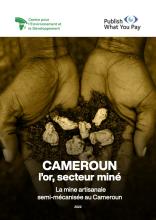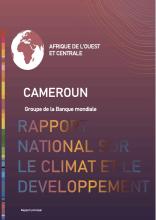/ library resources
Showing items 10 through 18 of 73379.O trabalho examina os desafios e a insegurança causados pela improdutiva administração dos vastos recursos naturais do Golfo da Guiné no século XXI. Esta região compreende países que se estendem de Angola a Guiné-Bissau, sendo de importância geoestratégica para a África e o mundo.
Analisa-se como observador-participante a evolução do pensamento do movimento social camponês transnacional, a Via Campesina, nos últimos 25 anos, sobre os temas da reforma agrária e da defesa da terra e do território.
Esta é a versão PDF de uma história de dados online sobre os impactos do VGGT, publicada pelo Land Portal em 4 de outubro de 2022.
O presente artigo procura examinar a equação “povo-ruralidade” no quadro da transição democrática portuguesa, tomando como corpo empírico as Campanhas de Dinamização Cultural e Acção Cívica do Movimento das Forças Armadas (1974-1975).
Le Cameroun est favorable à l’exploitation minière, pour promouvoir le développement national. Cette option a entraîné la création de nouvelles catégories de permis, intermédiaires entre la mine industrielle et l’artisanat minier : la petite mine, et la mine artisanale semi-mécanisée.
Le climat de la planète Terre change et le Cameroun, comme d’autres nations africaines, en subit les conséquences.
O artigo apresenta uma pesquisa sobre o Parque Natural do Fogo, na ilha do Fogo, em Cabo Verde, tendo como foco as sociocosmologias caldeirenses.
Duas posições opostas apresentam os trabalhadores agrícolas alentejanos ou como incapazes de participar em associações formais ou como “revolucionários naturais”.
Paginación
Land Library Search
Through our robust search engine, you can search for any item of the over 64,800 highly curated resources in the Land Library.
If you would like to find an overview of what is possible, feel free to peruse the Search Guide.








